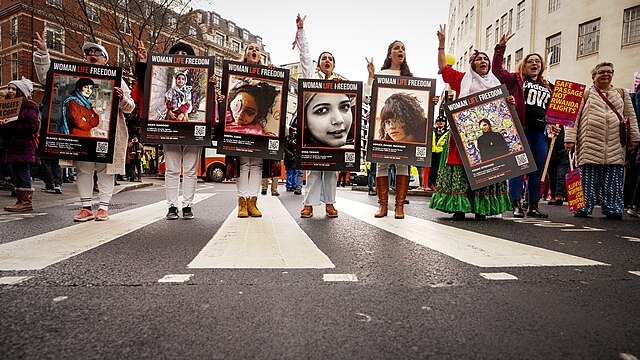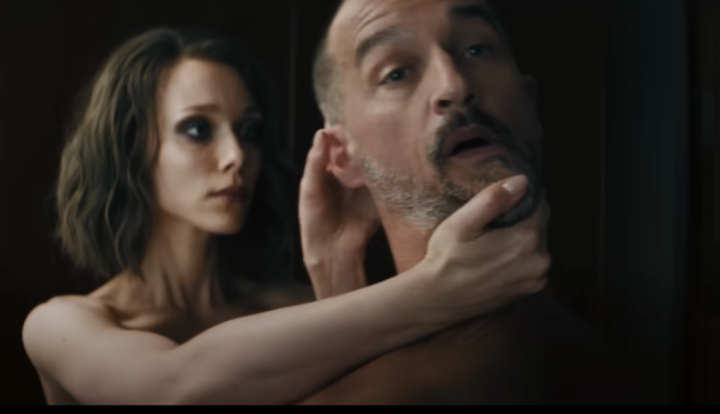interviews
Brendan Kiely Uses His Privilege to Interrogate Privilege
In “All American Boys” and his latest, “Tradition,” the author puts white supremacy and toxic masculinity under a microscope

I was introduced to Brendan Kiely when he collaborated with Jason Reynolds on what would become the New York Times bestselling and award-winning book All American Boys. I was shocked, utterly shocked, to meet a cishet White man determined to speak out about the issues of White supremacy directly, and not guise it under a fairytale premise. At a time when many may want to write away from the issues, this was someone writing towards it, who presented an honest take on responsibility not often seen or read. (Kiely and outspoken advocates in marginalized communities served as examples on how I should reckon more with my own privilege.)
Kiely’s adamance to consistently reflect and speak out on the roles of those with power is also evident in his recent essay in The Good Men Project and several of his books. From owning White privilege to recognizing toxic masculinity, Kiely targets awareness and acceptance of accountability for progress to those of privilege about their privilege. And this isn’t relegated solely to his writing. It’s also evident from his work as a public speaker and advocate working with literary activist groups such as PEN America. With his latest book, Tradition, Kiely zooms in on rape culture and toxic masculinity within an elite boarding school.
I spoke to Kiely about his role as a White man in an obviously broken system, and how acknowledging and pushing against power can give voice to, not so much the voiceless, but the silenced. In the end, we both wanted to know: Within a society of toxic masculinity, when can we expect men at any age to take responsibility?

Jennifer Baker: Much of your new book seems to be about awareness by those with privilege. Or at least the path to awareness. How do you as author pursue writing a book like this at all?
Brendan Kiely: Action without more time spent building awareness can be dangerous, so I do try to spend a lot of time on awareness, and I think that’s part of how I approach writing a book like this. I spent a lot of time listening to women. And I spent a lot of time reflecting on my own experiences growing up, the ways in which boys encouraged in each other pretty toxic behavior. Also the moments when some boys had the courage to stand up and let the rest of us know we were being idiots. In the same way I wanted to talk about racism in America when writing All American Boys, I had to look at Whiteness and ask how White people can do a better job engaging in self-examination and critique. In Tradition I want to look at misogyny and rape culture and ask men to engage in deeper conversations of self-critique. That seems like the only honest way in for me.
I had to look at Whiteness and ask how White people can do a better job engaging in self-examination and critique.
Jenn: Makes sense. With the rise of #MeToo we hear more from victims, and in your essay (in The Good Men Project) as well as your book, you speak to the need to not only listen to women, but believe them.
Brendan: Absolutely.
Jenn: Where do you think that lack of belief comes from in the male psyche? Understandably, you can’t speak for all men. But there’s a lack of assessment in terms of boys recognizing their behavior, though they’re being supported or protected.
Brendan: On an individual level, I think there are many people (men in this case) who say to themselves, “Well, I’m not that” (then point to an extreme example) “I’m not Harvey Weinstein.” And by distancing themselves in that way they don’t take accountability for all the ways they enable people like him. In Tradition, it isn’t only that some of the boys think they personally aren’t doing anything wrong; the school wants to protect them because the boys are assets. They are sports stars, they bring prestige to the school. They are the sons of Board members, trustees who pay a lot of money to have buildings built at the school. What this all says to other people, anyone without as much institutional power, is that the institution doesn’t care about them as much. For instance, [the character] Jules feels unheard. In fact, it’s even worse — boys, teachers, school officials, even some of the other girls, hear her and want to silence her. That’s why I begin the book with the quote from Arundhati Roy: There is no such thing as the voiceless, only the silenced or the preferably unheard.
The issue with boys too is that they don’t recognize their own power. They’re taught to think, “Hey, look what you’ve accomplished,” instead of, “Hey, look what other people have accomplished for you.” That kind of false sense of self-worth, as a student, a man, whatever, I think is dangerous. And that is the kind of stuff I want to unpack and reveal in real time.
The issue with boys too is that they don’t recognize their own power. They’re taught to think, “Hey, look what you’ve accomplished,” instead of, “Hey, look what other people have accomplished for you.”
Jenn: Oh, and that’s a sour spot too? That moment of recognition of how one gets “saved” when you have privilege. How much money and Whiteness and maleness can “save” you from having to face yourself. And, sadly, we see this in our government today.
Brendan: Exactly. It’s terrifying! White men have the most fragility, it turns out.
Jenn: And this isn’t just reserved for spaces like the Fullbrook school, where your book takes place.
Brendan: Not at all. Fullbrook is representative of our whole society. The other epigraph is from Paradise Lost because I wanted to talk about how these problems of abuse of power, and the construction of a “paradise” are suspect. A paradise for whom and at what cost to anyone else? The very notion of a “paradise” feels built on a kind of false innocence.
Should White Men Stop Writing? The Blunt Instrument on Publishing and Privilege
Jenn: Do you think false innocence is tantamount to protecting what’s perceived as “the upper class”?
Brendan: In Tradition, I think it is about protecting men — something Jules calls out while they are studying Paradise Lost. There’s a narrative that goes back way too far that seeks to protect men — back to what you were saying earlier. And likewise, when we build places and say “this is an ideal school, a very good school” and hold it in such high esteem, and yet, under the surface, it’s riddled with dangerous misogyny and classism, it isn’t a paradise at all. In fact it makes the notion of any paradise where everyone doesn’t have full agency very suspect in my mind. That’s why I wanted this book to lead towards rebellion.
Jenn: It also sounds like, from a personal perspective, this investigation (of privilege and power) started at a young age for you.
Brendan: Yes. It did. And I was fortunate that women and people of color in my life asked me to interrogate my male and white privileges and power. When I was growing up, most men and white people weren’t asking me to do that interrogation. I also heard it in a lot of the art and music I was checking out. I just downloaded a bunch of music I used to listen to in the early 90s, because I wanted to remember the stuff that inspired me to think more about who I was and how much privilege I’d been afforded through no effort of my own.
It’s important to remind myself that there is no end to this learning and interrogation. While I started thinking about it when I was young, I have to remain committed to thinking about it for the rest of my life. My ignorance will always be greater than my understanding, so I always have to remain committed to understanding more.
My ignorance will always be greater than my understanding, so I always have to remain committed to understanding more.
Jenn: Not to say this is a “platform,” but how often do you think these kinds of things — particularly the patriarchy and male role in rape culture from an acknowledgment of being part of the problem — happens in general, let alone in art?
Brendan: I don’t think all work necessarily needs to be about identity, though at this point in our lives, I’m not sure how it can really escape the work we make either. And therefore, particularly as someone who has been bestowed a vast amount of social power through my whiteness, maleness, and heterosexuality, I think the space for me to work in are stories that reflect on those privileges, why they are so insidious and destructive. I think there is a lot of room for more of this kind of work.
But it is important to say that there have been so many people without those privileges and power who have been talking about all of this forever. So it’s essential that as I do my work, I look back, listen, and learn from the masters who have been unpacking this work for so long. I love going back and reading (James) Baldwin and (Toni) Morrison and hooks. I loved re-reading The Handmaid’s Tale and Speak and What Girls Are Made Of. These are authors and books I keep close by me as I work because whatever I’m doing, I’m doing it because I learned from them. I was on a podcast the other day and I was talking about how much I love Renée Watson’s Piecing Me Together. Some people call that a “quiet” book. But to me, if you sit and listen, it’s a book about myriad aspects of identity up against and thriving in the face of all those forms of oppression, like the patriarchy. If you listen, every turn of the page is a heartbeat.
Jenn: Do you think people are ready for these conversations in general? I’ve heard a lot of the time it seems adults aren’t ready for this type of dissection, but that younger readers tend to be more open to it?
Brendan: Actually, I think people of all ages are ready for it because I do believe people have been talking about it all for a long time. The problem is that maybe people (and some people in particular — looking at you, Brendans like me of the world) haven’t taken the time to internalize what that means.
But also, I absolutely agree that as I travel the country and speak with young folks, they are eager to have these conversations. They are eager to see it, feel it, and experience it through art. I’ve learned so much from young people as they’ve told me about the books they like and why, as they’ve told me about why they’d hope more adults would see the emperor’s nudity (or his privilege and power) in the same way they do and stop pretending he’s wearing clothes.
Jenn: There is one more thing I wanted to talk about: the scene where Jules puts a tampon on her desk.
Brendan: Sure.
Jenn: It made me think about how, as women, our bodies make men uncomfortable because certain aspects not under their control, nor is this something of interest. So it makes men uncomfortable.
Brendan: Yes. I think that is very true, and I wanted to bring that to life in the scene where Jules puts her tampon on her desk. It bothers me that I didn’t know anything about that when I was a teen boy. That’s on me, for sure, but it’s also the way we men in general often dismiss women and their bodies. Oh, she’s on the rag, or other offensive phrases like that.
Jenn: What do you mean when you say it bothers you?
Brendan: It bothers me because I think it is essential for us all to know about bodily health, and that doesn’t mean I should just ignore women’s health because I’m a man. It bothers me because it feels like I can draw a direct line from my teen boy’s ignorance to the kind of systematic denial of appropriate healthcare for women in our country, and women of color in particular. That just feels so patriarchal and racist and disgusting.
This is exactly what I’m hoping to do in Tradition. Draw a line from the corrosive behavior in the school, and especially among the boys, to the kind of systems we have in place in the workplace, in government, in our community. The patriarchy doesn’t come from nowhere — it comes from young men nurturing an inherent misogyny in each other, letting it fester, and it impacting the decisions they make every day, as boys and later as adults. That’s why the book leads toward rebellion.
The patriarchy doesn’t come from nowhere — it comes from young men nurturing an inherent misogyny in each other, letting it fester.
Jenn: Tradition leads to stagnant thinking, as you mention, and this protection. You say it’s the old boys club, but it’s also the status quo of keeping things in line as one sees fit. But change is a pretty big shift and it has to come from acceptance of privilege, though that word is scary to many.
Brendan: Absolutely. I agree. Change comes from an acceptance of privilege and a shift in the way those of us who have it act. I can’t walk into a room and say, hey, it’s only me! My Whiteness, my maleness, precedes me into the room. So given that reality — I have to change the way I was taught to act.










